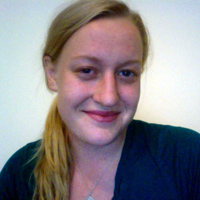Yale students go to class.

You wouldn’t get that impression reading the article by our classmate Nathan Harden. His is a Yale of “sex-toy pageants, porn-star lectures, sadomasochism seminars, and fellatio demonstrations.” Those things did happen, during Sex Week at Yale: a 10-day event held biennially that most students don’t really attend because they have other stuff to do. Like go to class.
The Yale that Harden describes in yesterday’s article, and in his book, Sex & God at Yale: Porn, Political Correctness, and a Good Education Gone Bad, is a very sexually immodest place. He believes this immodesty hurts women, and proves the university has lost any mission it once had. As recent Yale alums ourselves, we believe all this immodesty is not only wonderful for women, but also perfectly captures what Yale’s mission is today.
Yes, there are problematic aspects of Sex Week. Should students be allowed to receive buckets of cash from adult-film house Vivid Entertainment, sex-toy vendor Pure Romance, and Trojan condoms to throw an event where their spokespeople headline? Probably not. And in fact, this year, the Yale administration banned corporate sponsorship, and only allowed the event at all because of a tempered, less-titillating proposal. Harden never mentions that.
But should Yale allow students be able to invite porn director Steven Hirsch and ex-porn superstar Sasha Grey to campus to talk about their choices, ethics, and business? Harden doesn’t think so, claiming it sullies the academic mission and core moral values Yale alum Jonathan Edwards experienced in the 18th century.
In 2012, however, most Yale students have watched approximately a billion hours of porn by the time they matriculate, from hentai (anime porn) to scat (poopy porn) to crying (porn where people cry). And because porn, we agree with Harden, “isn’t just fantasy, it’s a powerful force shaping our culture,” it needs to be unpacked, just like King Lear, the Illiad, and Moby-Dick.
Harden’s anger with Sex Week—the forced pivot of his book—is that he thinks it creates a terrible environment for women. But Harden doesn’t like any display of sex really, unless you count the pulsating, supple manhood of a Bernini nude. Harden doesn’t like that there are bags of condoms hanging in freshman dorms. A photo taken by a student artist depicting her sexually trysting with another woman “turned [his] stomach.” He ushered his mother of “modest disposition” out of the rare book library, where they were basking in the glory of the Gutenberg Bible, after noticing a nearby display of photographs showing naked body parts, so as not to spoil her “positive impression of the place.”
In his book, Harden mentions one 2008 Sex Week talk, titled The Female Orgasm, about how sexual culture is geared toward men’s desires. One of us went to that talk, and the speaker described how in her middle-school sex-ed class, the boys and girls were separated: Boys were taught about wet dreams, and how they’re OK; Girls taught about periods, and how to stay clean. The message to boys was “you’re sexual beings, don’t worry about it.” To girls, “you’re dirty, don’t forget to douche.”
Harden apparently found this lecture so unbearable that he skipped out halfway through. It seems sex, for Harden, should be kept a private affair.
But for feminists in particular, sex can’t be a private affair. And indeed, for women throughout history, sex never has been (see Anne Boleyn and her inability to give Henry VIII a son).
That’s because sex is the site of most of the struggles that women face as women: rape, sexual harassment, reproductive rights, the pressure to be impossibly skinny (so people will have sex with you), the pressure not to be too aggressive or loud or ambitious (so people will have sex with you), the pressure not to have too much sex so you’re not a slut, the fact that so many women never have good sex at all (college women have orgasms half as often as men on repeat hookups).
There were many high-profile sexist incidents on campus while we were students, like a fraternity taking a photo of themselves holding the sign “We Love Yale Sluts” in front of the Women’s Center, and another fraternity shouting “No Means Yes, Yes Means Anal” through the central quad. Less visibly, women hold only 23 percent of Yale’s tenured faculty positions, and hundreds of students are raped each year, according to Department of Justice estimates (PDF).
Harden isn’t surprised, and neither are we, that a group of female students filed a complaint last year with the Department of Education’s Office for Civil Rights, claiming that Yale had allowed a sexist environment to persist.
But, in our opinion, bunches of dudes weren’t misogynist dicks because of a talk by a porn star or a workshop on vibrators—the crux of Harden’s book. They were misogynist dicks because they grew up in a world full of misogynist dickishness, where women don’t have enough power yet to control our own image, and men consume thousands of hours of porn that makes humiliating women seem sexy. There are thousands of reasons sexism is still pervasive in America, but a lecture on “lip tricks” isn’t one of them.
The incidents of misogyny at Yale also aren’t unusual. Similar things happen on college campuses across the country. The difference is that Yale’s female students raise a s--tstorm.
We were on the Women’s Center board when the “We Love Yale Sluts” incident happened, and we blasted the campus with an email threatening to sue, wrote a series of op-eds for the school paper, and drafted a 27-page report to the administration.
People thought we were insane, but Yale taught us to do insane things if we believed them. And students talked about it—in dining halls, at parties— agreeing and disagreeing with our actions. Crucially, those conversations meant that when something similar happened again, which it did, people recognized a pattern.
Public discussions of sexual culture don’t turn people sexist. They make them less sexist. And Yale gives lots of controversial issues a public airing, and controversial people a podium. In our time there, the visitors included Chinese leader Hu Jintao, Danish cartoonist Kurt Westergaard, “ex-gay” evangelist Christopher Yuan, retired Israeli Air Force Brigadier General Nechemia Dagan, British Prime Minister Tony Blair, and the rapper Akon. For all of these people, students protested in droves, wrote damning op-eds, and had their opinions tested and formed.
This year, a group of Yale students organized a “True Love Week” to run alongside “Sex Week,” with events like “The Person as Gift,” “Chastity and Human Goods,” and a traditional date night. During one of the events, with a Providence College professor who had published some anti-gay remarks, around 50 students staged a “kiss in.”
A “Sex Week” and a “True Love Week” vying for classroom space, and students talking and writing and caring about it—that’s a perfect expression of what Yale’s mission is today.
Ultimately, we don’t think Harden believes his own thesis. He adores Professor Emeritus Harold Bloom, for example, dismissing the fact that he allegedly sexually harassed feminist author Naomi Wolf and other female students during his tenure. Sex Week at Yale is merely the tool Harden uses to wax about the moral degradation of Yale generally into an unpatriotic and godless institution. Unfortunately, that book has already been written, by William F. Buckley in 1951. Harden, to his credit, does discover Sex Week as a spicy new peg. But really a more fitting title for his manifesto would have been Sex Week Is Weird.







